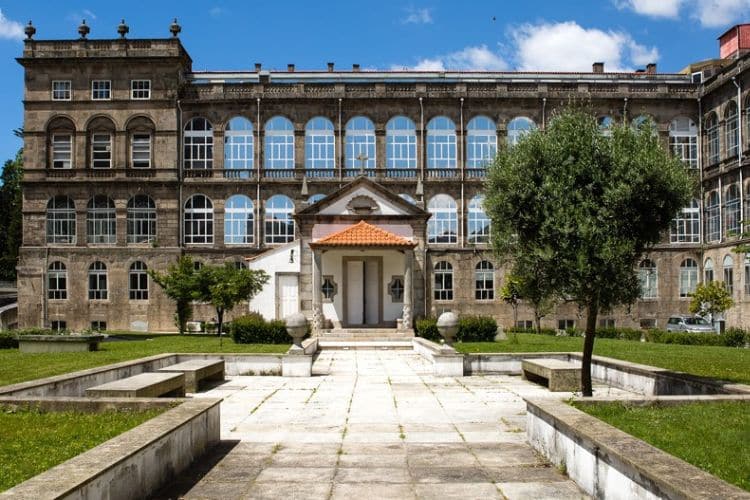22 de August, 2023

One of the things that has led many foreigners to
move to Portugal
is the quality and cost of health services. Since June 2022, when they stopped charging user charges, the public health network has been mostly free. And those who want to supplement their healthcare coverage can always take out insurance and health plans, which in Portugal are not expensive. In this article we’ll talk about how healthcare works in Portugal, what the associated costs are and what the advantages are of having Portuguese nationality.
Portuguese nationality
to be entitled to the local national health system.
Realizing your goal of living in Europe or obtaining European citizenship can be simpler than you think. We offer personalized support to make the immigration process more accessible and uncomplicated.

Yes! The National Health Service (NHS) was created in 1979 with the objective of ensuring the right to health (promotion, prevention, and surveillance) to all citizens in a universal, comprehensive, and equitable manner. Through it, all residents can obtain care, in a universal and equitable way, in emergencies, specialties, perform exams and surgeries, and even undergo complex treatments.
In Portugal, all residents, nationals and foreigners, regardless of their economic and social status, can enjoy the full right to health: its promotion, prevention, and follow-up. This includes legalized foreigners.
Those who have Portuguese citizenship and live abroad can also obtain these services as long as they are registered with the National Health System (SNS): the number of the user (patient).
Read also: 8 Facts You Need to Know About Health in Portugal
Yes, foreign residents can also rely on the public health system. To be treated in the public health system, you need to have a user number (registration with the SNS). Those who already have a citizen’s card should not worry, as it already contains this information. To apply for a user number, you need to present the following documents at a Family Health Unit in the parish (neighborhood) where you live.
If the person wishing to apply for the user number and is not yet a legal resident in Portugal, other documents will be required, in addition to those already mentioned:
First you have to register at a Family Health Unit (popularly called Health Center), in your area of residence, preferably as a utente (patient). Each patient has his or her own family doctorwho acts as an intermediary between the patient and the wider health care system, including specialist doctors. The family doctor is responsible for caring for the patient, prescribing examinations and medication, and making referrals to specialist consultations.
The NHS does not allow the user to make an appointment directly with a specialist doctor. It is necessary to speak first with the family doctor, who will evaluate the situation and make the referral. The same applies to diagnostic tests.

Generally, yes. This is one of the frequent questions asked by those who choose to live in the country. Nowadays, the vast majority of services, including consultations and exams, no longer require the payment of user charges. Although these fees still apply in certain scenarios, the amounts are quite affordable. In addition, there are limits to the amounts that can be charged.
This is a system whereby patients share the cost of accessing medical care. More than half the countries in the European Union have some kind of scheme. In Portugal,the amount is almost symbolic.
As of June 1, 2022, the vast majority of SNS user fees are no longer charged, facilitating access to public healthcare. Payment is maintained only in emergency services, when users have no prior SNS referral (through health centers or the SNS 24 line) or are not hospitalized after the emergency.
Moreover, even in situations where fees are still charged, the exemption is maintained for some users, as shown below. You can consult fee amounts and details about exemption on the website of the Health Regulatory Authority.
It is also worth remembering that the amounts of the user fees can be deducted in the IRS, Portugal’s annual tax declaration. These amounts go into the health deduction, at 15% and up to a maximum limit of 1,000 euros per household.
According to the legislation in force (Decree-Law no. 113/2011, of November 29th), some users are entitled to an exemption from paying user fees in establishments of the National Health System (SNS). The exemption request can be made at any time, in person at your health centre, or online, through the Electronic Health Record | Citizen Area. It takes, on average, 10 days to be approved or refused.
Hospital referral, or rather, referral to hospital, is done through the SNS 24 Line (808 24 24 24 24) or the health center. Thus, before going to the hospital, the user should call the SNS 24 Line or go to the health center.

It is possible to book appointments with your doctor locally at the Health Unit or through the NHS website itself. All you need to do is register online with your User Number and from there you can book appointments from your own home. It is also possible to download the app, MySNS, on smartphones. All in a practical and modern way.
Yes, in some cases. In Portugal there are subsidized medicine programs. Many medications are subsidized, i.e. the government pays part of the cost and the user pays the rest. The discounts depend on the class of medicine, type of illness, and the profile of the user. Pensioners, for example, can get up to a 95% discount on their medication. There are also some types of diseases whose medication can be provided free of charge, such as insulin needed by diabetics, or treatment for diseases like Crohn’s Disease, Lupus, Hemophilia, among others. others.
In addition, the country has private institutions of social solidarity, such as Associação Dignitude which provides support for families that need financial help to buy medicines.
Finally, it should be noted that in order to buy medicines in Portugal you must have a medical prescription. This rule does not apply to all medicines, but to the vast majority of them, such as anti-allergic, antibiotics, immuno-suppressants, corticosteroids, stronger painkillers, among others.
Portugal has an Integrated Medical Emergency System (SIEM), a group of entities that act together to provide medical assistance to victims of accidents or sudden illness. Several entities cooperate together: the police, firefighters, the Portuguese Red Cross, hospitals and health centers. Coordination is the responsibility of the National Institute of Emergency Media, the INEM which is contacted through the number 112.
Emergency assistance provided by the INEM, through 112, is not charged to the user. Simpler emergencies can be attended to in health centers, and this assistance is usually provided immediately.
The amounts of the user fees to be paid for emergency care are as follows:
| Service (*) | Value |
| Multipurpose emergency service | 18 € |
| Medical-surgical emergency service | 16 € |
| Basic Emergency Service | 14 € |
(*) To these values are added the fees for complementary diagnostic and therapeutic resources. However, for each emergency service, the user will pay a maximum of 40 euros. | |
Contrary to what one might imagine, the public health network has excellent professionals. Really! Still, many people like to choose their doctors in the private network. Sometimes care in the public network can be more time-consuming or limited, with a reactive rather than preventive profile. So if you want to choose a doctor of your choice, are in a hurry, or want to be tested more often, you will have to pay more money for a private consultation.
According to the Portuguese Insurers Association, more than 3 million Portuguese have some kind of insurance or health plan, a number that has greatly increased since 2020, when the pandemic began.
The price of the consultations will always depend on the city, the doctor and the medical specialty to be considered. A specialty consultation (dermatology or gynecology, for example) costs around 80 euros in the city of Porto. Many Portuguese choose to take a health insurance as a complement to the SNS. In general, health insurances in Portugal are not expensive, but they work with a co-payment scheme. That is, in addition to the monthly amount, it is still necessary to pay an amount at the time of use. The average policy prices for the insured vary greatly in relation to the type of coverage contracted and the capital limit for each specific coverage. In 2020, the Portuguese paid an average of 30 euros per month for individual health insurance. With insurance, a private medical consultation that costs around €80 may cost only €30. It should be noted that these values are an average, and that policies have different coverage, capital, exclusions and limits. Health plans can cost from €5, depending on the services covered.
In Portugal, there are health insurances and health plans, which are different things.
Advantages:
Disadvantages:
Advantages:
Disadvantages:
Click here and learn more about private healthcare in Portugal.
Yes, in many cases! In the CUF network, for example, information about the languages spoken by each professional is included in the online description of each doctor. In the public network there is also a great chance of getting doctors who know English, since the language is spoken by a large percentage of the Portuguese population.
According to the SCImago Institutions Ranking, the best Portuguese hospitals in 2021 are:

Author:
Atlantic Bridge